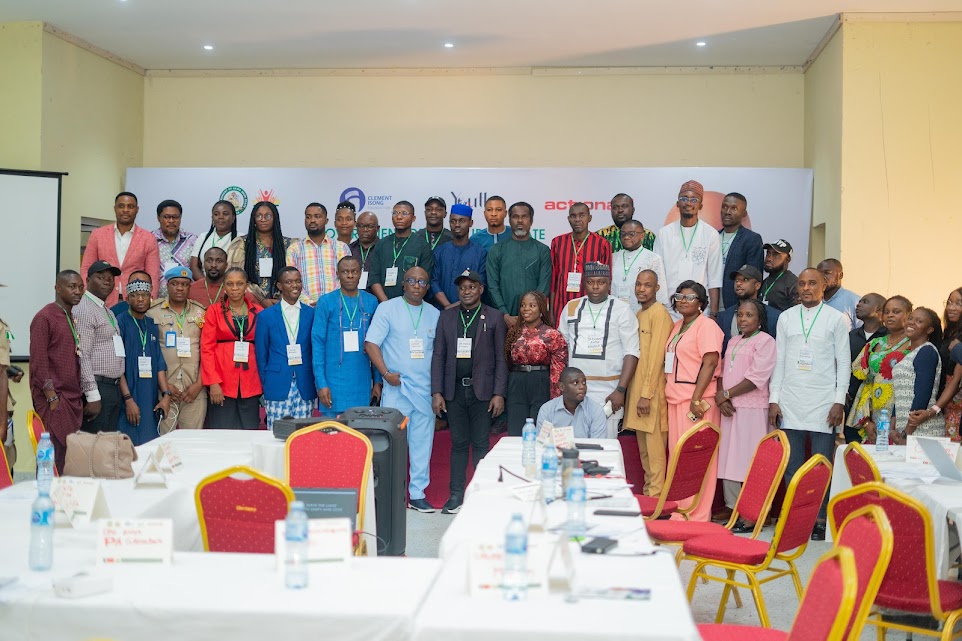A’Ibom Backs 10-year Youth Policy, Roadmap Implementation

By Ekemini Simon
A Youth Policy and Roadmap that will make the empowerment of the youth of Akwa Ibom State organised and entrenched has been reviewed and validated.
The review and validation took place during a two-day high-level stakeholders’ roundtable held on August 12 through 13, 2025, at D’Angelo Hotel in Uyo, in line with the global commemoration of International Youth Day.
The roundtable, organized by the Ministry of Youth Development in collaboration with Clement Isong Foundation, ActionAid Nigeria, and Youth Pride, had senior government officials, development partners, youth leaders, and private sector stakeholders reviewing and validating the Akwa Ibom State Youth Policy (2025–2035) and also adopt the Youth Development Roadmap ensuring the policy is inclusive, data-driven, and aligned with the Sustainable Development Goals.
Technical presentations from the Ministry outlined the policy’s six strategic thrusts and the youth development roadmap, underscoring the need for sustainable financing, reliable data, and broad stakeholder engagement. The sessions which had a clause-by-clause review of the draft policy, ensured stakeholders’ inputs were incorporated for adoption.
In a Communique issued at the end of the event, stakeholders affirmed that the policy was developed through a highly inclusive and participatory process, meeting recognized best-practice standards.
They noted the importance of Local Government Councils and relevant ministries, departments, and agencies in implementing the policy.
The stakeholders resolved to support the Ministry of Youth Development in implementing the policy and roadmap as the state’s blueprint for inclusive youth advancement.
They pledged to work collectively to facilitate the passage and secure executive assent for the Akwa Ibom Youth Development Fund Bill, which will serve as the central financing mechanism for youth development.
The stakeholders pushed for the establishment of a fully constituted Akwa Ibom State Youth Parliament, integrated into the Youth Advisory Board, to foster legislative engagement and policy input from youth. This move aims to provide a platform for young people to contribute to decision-making processes affecting their lives.
Stakeholders agreed to create a five-year strategic financing and implementation plan with clear roles for all stakeholders and a performance review mechanism. This plan they said will ensure effective implementation and monitoring of the policy.
While calling for inclusive programmes, the stakeholders resolved to extend the youth age limit to 40 years for persons with disabilities and provide inclusive modalities for all programmes. This move they said aims to promote equal opportunities for all youth, regardless of their abilities.
To equip young people with the skills needed to drive economic growth and innovation, capacity building and skills acquisition were also highlighted as crucial areas of focus with stakeholders resolving to promote capacity building and skills acquisition in agriculture, ICT, renewable energy, and the creative industry.
To enable young entrepreneurs to access the resources needed to start and grow their businesses, stakeholders agreed to facilitate access to affordable finance, markets, and business development services for youth-led enterprises.
The stakeholders said that a robust Monitoring, Evaluation, and Learning framework will be institutionalized to track progress, ensure transparency, and enable course correction. This framework they noted will help identify areas of improvement and ensure the policy is achieving its intended objectives.
Part of the resolutions read ” A comprehensive Disability Law would help safeguard the rights of youth with disabilities. Inclusion of non-indigenes who have been resident in the state for up to seven years in community-based
youth programmes strengthens social cohesion and prevents marginalization.
“Through the implementation of various youth intervention programs in the state, the Executive Governor of Akwa Ibom State, Pastor Umo Eno, Ph.D., has proven to drive a youth-inclusive governance.”







